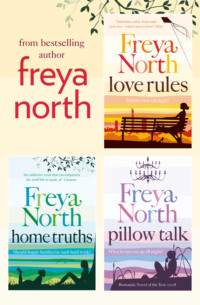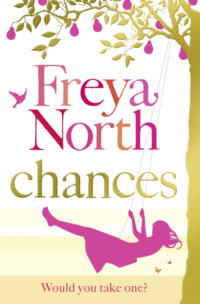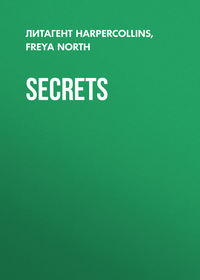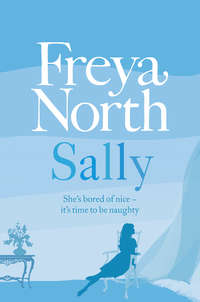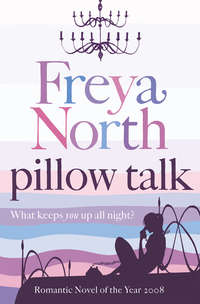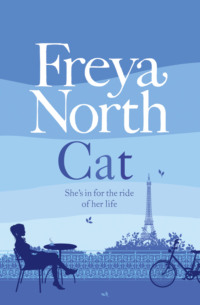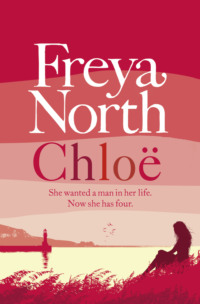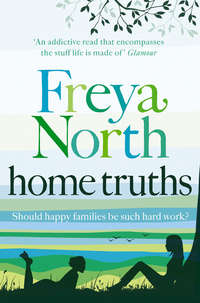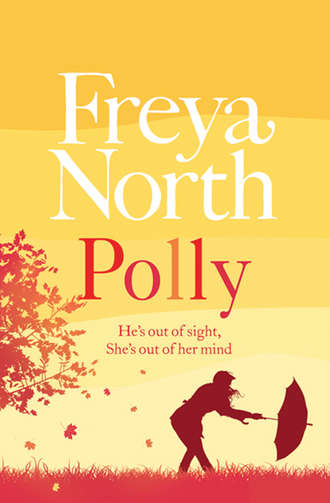
Полная версия
Polly
The John Hubbardton Academy is a prep school. Not, you understand, in the British sense (small boys learning rugger and round vowels in preparation for Eton); Hubbardtons is a high-school, a boarding-school, ‘proud to provide a rounded preparation for college’, as proclaimed on page one of the glossy brochure.
‘Here at the John Hubbardton Academy, we’re one big family,’ commences page two. There are 240 students and 45 full-time teachers. When John Hubbardton founded the school 118 years ago it was, by necessity, co-ed. The school went temporarily all-male in a perverted stance against the 1960s, but extended an apology and an invitation to females a decade later. Currently, two thirds of both students and teachers are male. But no one is complaining.
‘We work and play, and we learn and live. Together. And we have 150 acres to do it in.’
It certainly looks picturesque from the brochure. Whether the buildings are genuinely old, or just old-style, is irrelevant; they are structurally pleasing and set attractively within grand grounds sympathetically landscaped. The superb backdrop of the Green Mountains completes the picture. Seemingly seamless; from the brochure photographs at least.
Polly slips the folder into the seat pouch in front of her, in between the safety instructions and the duty-free catalogue.
Poor old Jen Carter, whoever she may be. Do you know, I’m not sure that BGS is a fair trade for the JHA. I can’t believe Max proposed!
In 1820, when Belsize Park sat just outside London, a thoroughly modern building was built for the purpose of overseeing the education of young ladies residing locally. The establishment was duly named Belsize Ladies’ College. An insignia was designed (an open book with a lit candle propped, somewhat precariously, at its centre) and a motto was chosen (Cherchez la femme).
Until the turn of the century, sixty pupils were attended to by six teachers in this one building. 1900 saw the first expansion of the school with the purchase of the four-storey house next door, and similar shrewd acquisitions followed in the early decades. Now, there are 300 girls and twenty-seven teachers squeezed into a coterie of old houses around the original school building; ingeniously interconnected by a series of corridors, covered walkways and iron staircases. No one is quite sure when the college for ladies became a school for girls but the institute is known now as Belsize Girls’ School. The insignia and the motto remain.
The grounds at BGS comprise two concrete rectangles over which the layout of a pair of netball courts are superimposed in red lines; two tennis courts, likewise, in blue. An oak tree, protected by an unquestioned ancient law, stands defiant, slap in the middle of the larger rectangle. It makes for interesting reinterpretations of the rules of netball and tennis. Winter and summer terms, the girls can choose to play hockey and cricket respectively on the manicured sports fields owned by the nearby public boys’ school. Needless to say, the popularity of these two sports vastly outweigh tennis and netball. In the spring term, there is a choice between pottery classes in the cellar of the sixth-form house, or choral society at the boys’ school. Unsurprisingly, you never heard so many fine voices.
Polly has taught English at Belsize Girls’ School for five years. She landed the position the day after she had forlornly sent out her seventeenth job application, the morning of the day when Max first asked her out. Something divine was intervening and she welcomed it. She still feels truly blessed.
I hope this Jen Carter Person will be happy living my life for me – or at least a part of it – while I’m gone.
Polly wriggles her feet into the red socks that came free with the flight and places the complimentary ‘snooze-mask’ over her tired eyes as, indeed, the passengers either side of her have done. Three hours to go.
Oh, for Marmite on toast.
Think about Max. Marriage. Marmite. Mmm!
‘Pollygirl set sail OK then?’
Dominic handed his brother a glass of his incomparable home-brew which he had poured on hearing Max’s car return. Max nodded, made an affirmative noise in his throat and accepted the beer with unbridled gratitude, downing half the pint swiftly and with eyes closed as if it was some elixir. Or in the hope, at least, that the fast-working potency of the beverage might lead him to believe that Polly had not gone at all.
The brothers sat down on their sofa and supped in amiable silence. Both had kicked off their shoes and had their legs stretched out in front of them; ankles crossed on the coffee table built, quite obviously, for that precise purpose. Dominic flicked between television channels, finally choosing a cartoon and silencing the volume.
‘So,’ he said.
‘Yes,’ Max replied.
Dominic replenished their glasses and they continued to sit alongside each other, the occasional chuckle acknowledging that antics in animation are as entertaining without sound as with.
‘So,’ Max said eventually, as if concluding a lengthy soliloquy.
‘Yup,’ said Dominic, in utter understanding. Close friends often know what each other is about to say, they may even finish sentences for one another; but close friends who are also siblings can conduct entire conversations without saying a word. And so it is with Dominic and Max, five years separate them and nothing comes between them. They can have entire conversations in utter silence.
They shared a bedroom when they were young and, for the past seven years, Dominic has rented the second bedroom of his flat to his younger brother.
‘It’s in the wrong side of Hampstead,’ he had warned Max.
‘How on earth can there be a wrong side to Hampstead?’ Max, then in Streatham, had marvelled, already heaping his belongings into black bin bags.
So the boys kept home together and never wavered from the four golden rules they had devised during that journey seven years ago from south to north London. Sitting-room to appear to be tidy, cleaning duties on alternate Saturdays, fridge always to contain milk and alcohol, and CD collection to be communal. The draughtsman and photographer, both freelance and with adjacent studios nearby, living and working alongside each other in peace and harmony. They never fight for the shower or the phone, they never argue about washing up, they invariably have the same taste in TV and radio programming. And their combined CD collection is not so much communal as duplicate.
Dominic Fyfield is five years older, two inches taller and a stone heavier than his brother. Like Max, Dominic is handsome in face and character. Where his features are not as fine as Max’s (his hair is a touch coarser and his eyes a little plainer), Dominic’s disposition is more effortlessly outgoing. Both brothers have winning smiles but Dominic shamelessly employs his to wholly libidinous ends. Dominic, however, respects Max’s monogamy just as much as Max marvels at his brother’s stamina and ability to chop and change, mix and match, when it comes to women. Max does, however, frequently call his brother a tart. Dominic, though, accepts it only as a profound compliment.
‘Why thank you, good man. Praise indeed from one as staid and unadventurous as you, Maximilian.’
‘Ah! But at least I know where my next metaphorical hot meal is coming from. Ever thought you might go hungry?’
‘Moi? Pah!’
The Fyfield brothers are a lovely balance because they are different enough not to be competitive. Neither brother covets the other’s life because they are content and settled and secure with their own patterns. Neither, therefore, passes judgement. They disagree frequently but they rarely argue. And though Dominic lavishes many a smile on Polly, it is with no intent other than his seal of approval, acknowledgement of his brother’s good fortune.
On first meeting her, Dominic had put her to the test and discovered she came through with colours blazing. He regaled Max with his findings.
‘Bit small?’ Dominic suggested.
‘But perfectly formed,’ Max justified.
‘Mmm,’ conceded Dominic, ‘nicely put together. Bright too.’
‘As a button,’ confirmed Max.
‘Gregarious and outgoing,’ said Dominic, throwing a cushion at his brother. ‘Good balance for you, you fusty old fart.’
‘I don’t think you can talk about farts being fusty, Dom,’ warned Max with a retaliation of cushions, ‘it’s the pot calling the kettle black.’
‘Bastard! Flatulence is a serious medical matter. OK, OK. So this Polly Fenton is a teacher.’
‘Yup, English.’
‘Shame it’s not PE but never mind. Remember that PE teacher I went out with?’
‘Unforgettable,’ cringed Max.
‘Gave a whole new meaning to the term “games mistress”, I can tell you.’
‘I can hear her still,’ Max groaned.
Dominic had a private reminisce, of which Max decided not to partake, before returning his attention to his brother’s new girlfriend.
‘Fenton. Do you know, she actually apologized to me for not being related to Roger. Now that’s what I call impressive.’
‘Who?’
‘Maximus Cretinous! Roh-ger Fen-ton,’ Dominic stressed as though spoken italics would assist, ‘seminal nineteenth-century photographer? Crimean War?’
‘Right, right,’ hurried Max. ‘She’s not related to James either.’
‘Who he?’
‘Jay-ums Fen-ton, dickhead,’ Max relished. ‘Come on – landmark British poet, journalist, critic? The Memory of War?’
Dominic regarded his brother slyly. ‘Swot!’ he declared, with a friendly punch to the biceps.
‘Back to Polly?’ Max, ever the pacifist, suggested; so they chinked glasses and toasted her health and Max’s very good fortune.
‘Get you, Max!’ mused Dominic. ‘Is she tickling your fancy or melting your heart?’
‘We’re not talking marriage here,’ Max had laughed, standing and stretching, and offering his brother a choice between a frozen lasagne ready-meal or beans on toast.
‘She’ll be half-way through her journey now,’ Dominic remarks, listening to his watch, checking it against the time on the video and phoning the talking clock to make absolutely sure.
‘Oh, and I asked her to marry me,’ Max says to Dominic, as if informing him merely that he had invited Polly along to the cinema with them.
‘Oh yes?’ says Dominic, keeping a straight face but unable to do anything about the sparkle in his eyes.
‘Yup,’ says Max, ‘just before she went through passport control.’
‘Did she, er, accept graciously?’ asked Dominic, all wide eyed and winsome.
‘Not in so many words,’ said Max slowly, ‘what with all her sobbing and hugging me. And her nose all blocked up.’ He proffered the crumpled section of his shirt as proof.
‘Ah,’ said Dominic, further convinced that all women were soft. And so, it now transpired, was his brother. ‘Bet she made off with your diamond!’
‘Actually,’ said Max, burping lightly under his breath and passing his glass for another refill, ‘it was all a bit spur-of-the-moment. The words sort of tumbled out. Anyway, she’s having to make do with the plastic jigger from a small bottle of fruit juice. Until she comes home.’
With eyes shut and further concealed by the eye-mask; body wrapped, chin to knee, against the controlled chill of aeroplane air-conditioning by a thin, synthetic blanket, Polly concentrates on forgetting the whirr and smell of the plane, the words and pictures of the Hubbardtons brochure, to transport herself back to the then and there of her departure from Max. And his words. And their meaning.
Marry me.
Me?
Who else.
But I haven’t really thought about it – not outside the context of a soft-focus day-dream. We’ve never spoken seriously about it – like we might be tempting fate if we did. But there again, who else would I marry?
She wriggles in her seat and retrieves the orange plastic neck-ring from the back pocket of her jeans. She places it on her finger, under the blanket, eyes scrunched shut even behind the eye-mask, desperate to recreate the sensation when Max did so. It is too large, of course. Somehow, its symbolism is almost too big for her to contemplate as well, thousands of feet up in the air, on her way to foreign climes. For a whole year. She’ll think seriously on it anon of course, perhaps on the banks of some lonely stream, under the bough of some lofty maple, when she feels alone and a million miles away.
I’m bound to, frequently.
God, a whole year. And so far away.
The eye-mask forces her tears back against her eyes. The noise of the aircraft prevents anyone hearing her sniff. She returns the plastic neck-ring ring to the back pocket of her jeans. It’s serrated.
Sharper than you’d think.
The glut of emotions enveloping her at Heathrow had been complex: the pain of parting from Max; the apprehension of leaving kin and country; a fear of flying; the love of the job she was leaving; concern for the position she was exchanging it for. Not to mention the bombard of emotion subsuming her when the man she loved proposed marriage. Out of the blue.
So spontaneous – very un-Max. Wonder if he thought about it, whether he really truly meant it?
‘Oh dear,’ she wails suddenly, out loud, tasting the blanket inadvertently, ‘I didn’t actually say “yes”.’
The shock of it!
THREE
Polly was immensely excited to see Cape Cod from the aeroplane window.
‘Do you know, it looks exactly the same as it does on a map!’ she exclaimed to her neighbour who was still wearing the blindfold. ‘Look!’ Polly urged, with a gentle but insistent nudge, ‘it’s like an arm, a crook at the elbow, a hand cupping the sea against it. Look!’
Her fellow passenger did indeed look and then retreated back behind his eye-mask hoping sincerely that no other cartographical features would solicit his neighbour before they landed in Boston.
As Polly waited at the luggage carousel, she suddenly had absolutely no idea who would be meeting her. In the event, she would have made a bee-line for Kate Tracey anyway, whether or not she had been brandishing the enormous board emblazoned with Polly’s name. Amongst the sea of faces and the barrage of name signs, Kate’s easy smile reached out to Polly immediately. As she approached, she marvelled at the coincidence that the name on the sign was indeed her very own.
‘Polly?’ the woman mouthed, from some distance.
‘Yes!’ Polly mouthed back, nodding and grinning.
‘Polly!’ the woman declared when they were close to, ‘hi there!’
‘Hullo,’ said Polly, a little breathless, ‘how do you do?’
‘I’m Kate Tracey, welcome,’ the woman said, gripping the placard between her knees so she could shake Polly’s hand heartily, ‘how you doing?’
‘Oh,’ said Polly, ‘absolutely fine, thank you.’
‘Good! This is Bogey. Bogey say hi.’
Polly hadn’t even seen the dog, having been preoccupied with Kate’s glinting eyes behind red-rimmed owl-frame spectacles.
‘Hullo Bogey!’ Polly declared, flopping to her knees and encircling her arms about the oversized Airedale’s neck while he slurped at her cheek. ‘As in Humphrey?’ she asked Kate.
‘Sure thing,’ Kate confirmed, trading the dog’s lead for Polly’s trolley.
‘I’m Fenton as in Roger and James,’ Polly explained, jigging to keep up with Kate who was slaloming effortlessly through the concourse towards the exit, ‘although I’m related to neither. Unfortunately.’
‘That’s too bad,’ rued Kate kindly, coming to a standstill, cocking her head and nodding at Polly, ‘I’m kinda partial to British photographers and British poets.’
Polly was most impressed.
‘I’ve had rampant affairs with both species,’ confided Kate through the side of her mouth while she walked. ‘Rampant!’ she all but growled. ‘In the sixties,’ she said, by way of justification.
Polly laughed.
I like this woman!
What’s she like then?
She’s head of art at Hubbardtons. I suppose she must be in her early fifties, but she’s quite trendy with her hair cut into a wonderful feathery crop and her face framed by these wacky specs. She has a round, sparkling face and chipmunk cheeks when she smiles. She’s wearing a lovely old leather jacket – which has obviously known no other owner – checked trousers and funky chunky boots. She walks incredibly fast and, oh how funny, she’s just clicked and winked at the newspaper-stand chap. He must be a hundred and twenty. Ha! Here’s her car and it’s a real slice of America – what they call a station-wagon, I think, with that faux wooden panelling along the side?
Do you know, I’m actually here! I’m in America, in the car park at Logan Airport. It’s not frightening, it’s fantastic. Can’t believe it. Wow!
‘All right! Here we go, luggage in the trunk, Bogey in the back, Polly up front with me.’
‘How long will the journey take?’
‘About three and a half.’
‘Bet that’s just round the block for you – rather than London to Liverpool for me. Is it scenic?’
‘Round the what? I’ve been to Liverpool, you know, in the sixties, of course. And yup, the route’s pretty.’
‘Fantastic! I’ve never been to America.’
‘You’re gonna have a lot of fun,’ said Kate, nodding sagely and tapping Polly lightly on the knee. ‘You’ll never want to leave.’ Polly tapped Kate back.
Oh yes I will. Everything I am is in the UK.
‘I like your checked trousers,’ she said instead.
Kate laughed, short and sharp. ‘They’re plaid pants over here.’
The journey passed quickly, Kate talking nineteen to the dozen while Polly’s eyes, like her ears, worked overtime to take in all she could.
School on Saturdays – nightmare!
Wooden houses. Big cars. Sidewalks. Very fat people. Fantastically thin people.
So I’m to have a room at Kate’s house for the first term.
Driving on the wrong side. Policemen with guns and cool glasses.
Term started last Thursday but the first weekly faculty meeting is this Thursday evening.
The most enormous trucks imaginable, huge radiator grilles quite menacing. Truck drivers up in the gods with baseball caps. Kids with baseball caps back to front.
There’ll be no more than twelve in a class – that’s phenomenal.
The Charles River. Sculling. Harvard round the bend and out of sight. Concord River. Connecticut River.
Kate, lovely Kate, stopping at a tiny bakery just across the state line, buying me a cinnamon bun and a double decaff coffee.
‘We’re gonna have a whole lot of fun. You’re gonna just love school, you’ll fit in a dream.’
Will I? Hope I live up to your expectations – you seem to have decided an awful lot about me.
It was dark when they reached Hubbardtons Spring but Polly was vaguely aware that the houses, for the most part, were white planked and that the dark, woolly masses looming in the background were the tree-covered hills.
‘95 per cent of Vermont is tree covered,’ Kate informed the squinting Polly. ‘Hell, there’s a nip in the air, come on in.’
The front door, it transpired, was never used. Kate explained it was for show and that the house would have looked kind of funny without one. Polly was led instead around the side of the house, up wooden steps to the wooden deck where three men drank beer from small bottles and, after brief ‘hi’s and ‘hullo’s all round, she led Polly into the house. Straight into the warm kitchen which smelt divine, passed a gargantuan fridge smothered with photos and various magnets, round a corner, up some stairs, along a corridor, down three steps and sharp left into an ‘L’ shaped room with a decisive chill to it.
‘Been airing it for you. It’s not really been used since Great Aunt Clara died.’
Polly looked horrified.
‘Hey! That was ten years ago. And she was one helluva lady. You want to unpack? You want a beer?’
‘Yes and no,’ said Polly. ‘I don’t think I like beer.’
‘Tell you what, I’ll fetch you one that’ll change your mind. And your life. I’ll put money on it.’
With Kate disappeared, Polly shut the windows and closed the double curtains; lace first, chintz second. She absorbed the details of the room in an instant: painted white iron queen-size bed with a handmade patchwork quilt, an old rocker with two slats missing from the back, a chest of drawers warped sufficiently for none to be closed flush, a bookcase crammed full, framed prints of Van Gogh’s bedroom, Monet’s water-lily garden and Cézanne’s gardener, and an exquisite watercolour of maple trees ablaze in the autumn.
‘Fall,’ corrected Kate, making Polly realize she must have been talking out loud. ‘Here you go,’ she sang, thrusting a cold bottle of life-changing beer into Polly’s hands, ‘I’ll be out the back with the guys. You take your time. We’ll have dinner in forty-five.’
Supper? Isn’t it one in the morning?
Not for you Polly, it’s only eight o’clock.
But Max’ll be fast asleep. I can’t call him.
It’s already tomorrow for Max. He hasn’t seen you since yesterday.
I haven’t even said ‘yes’ yet.
‘The guys’ turned out to be Kate’s husband Clinton (‘As in Eastwood?’ Polly had asked in awe. ‘Sure!’ he had responded. ‘Or as in President. But we’ll go for the former if you don’t mind.’); another foreign exchange teacher who was Chinese and asked to be called Charles with a silent ‘s’ though his real name sounded something like Bik-toy-ng, and finally another young teacher from Hubbardtons called Greg who informed Polly he taught ‘Math’.
‘Sss?’ suggested Polly, imagining only one side on a triangle, one axis on a graph, no long division and absolutely no multiplication.
‘Math-th!’ Greg brandished, though it made him spit slightly.
‘That’s some bandanna,’ praised Clinton gently as he heaped spaghetti on to her plate.
To her horror, Polly realized that the Virgin Atlantic complimentary eye-mask was still propped up on her forehead.
‘You want to trade?’ Kate asked. ‘For another beer, say?’
‘Yes,’ mumbled crimson-cheeked Polly, biting her lip and digging her nails into the mask, ‘and yes.’
Kate examined the snooze-mask carefully and then tucked it into her pocket triumphantly.
Concerned that the new arrival should vanquish jet-lag, the group ensured that Polly did not go to bed until a respectable half past ten though it meant, on waking the next morning, that she had little recollection of the latter part of the night before, could not remember what or if she’d eaten and had to be reintroduced to Greg from scratch later that morning.
After ten hours of thick, dreamless sleep, Polly felt eager to set her first full day in motion and to acquaint herself with her new town, her new job and as many new peers as her mind could possibly catalogue. There seemed to be no one around, a feeble ‘Morning?’ from the bedroom door brought no reply. After encountering two dead ends, Polly found her way back to the kitchen and occupied herself by introducing herself to the fridge door where she came across Kate through the decades alongside affable-looking people with great teeth. The magnets holding the photos in place were quite something: colonial houses, a host of Disney characters, a golden angel, various dogs, a Red Sox shirt, a variety of bagels and doughnuts – all in miniature and mostly chipped.
‘I don’t call it my kitsch-en for nothing!’
‘Kate!’
‘Good morning there! I’m going to have you fetch the bread and milk, that way you’ll catch the layout of the town – and I can show you the short cut to school later.’


